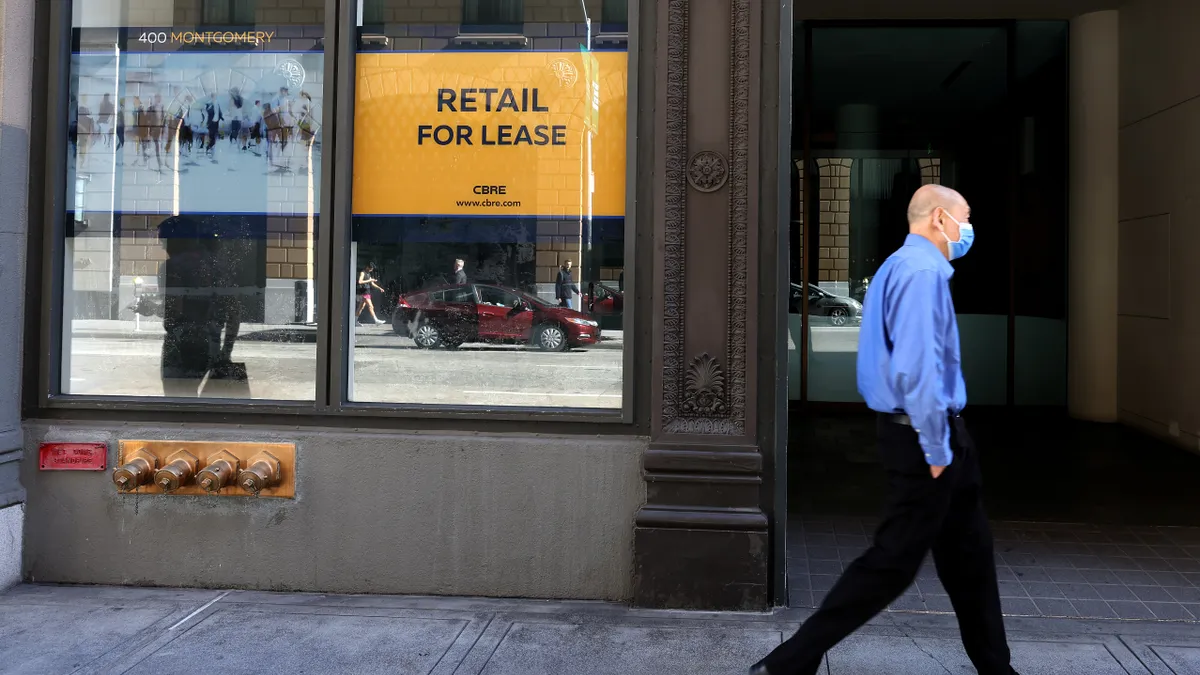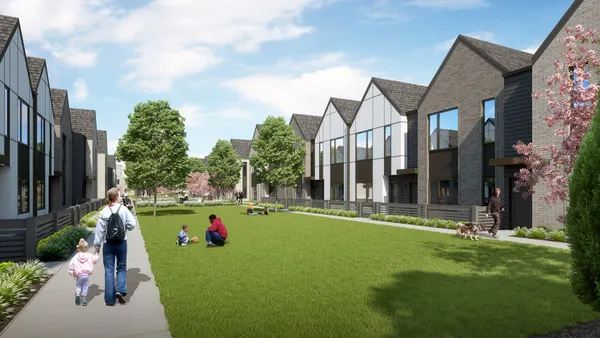Dive Brief:
- The cities and regions that could benefit most from turning underused office buildings into housing are the San Francisco Bay Area, Seattle, Phoenix, Atlanta and Denver, according to an Urban Institute analysis published June 5.
- “Cities experiencing both acute distress in their office real estate market and a significant need to increase their housing supply have the most to gain from intensifying their efforts to enable and ease office-to-residential conversions,” Urban Institute Research Associate Jorge González-Hermoso writes in the report.
- He urged these cities to encourage adaptive reuse by allowing more flexible land use, updating building codes, streamlining the permitting process and offering tax credits or property tax abatement.
Dive Insight:
The idea of turning offices into housing took off after pandemic-induced work-from-home policies left many downtowns with significant declines in daytime activity. Since then, cities nationwide have pursued adaptive reuse projects. The White House backed the movement last year with financing and technical assistance.
The Urban Institute analysis notes that many office buildings have layouts that are difficult to turn into housing. “Despite these challenges, the pipeline of office-to-residential conversions remains strong,” González-Hermoso writes.
The office-to-apartment conversion pipeline more than quadrupled between 2021 and 2024, according to a March 2024 RentCafe analysis. The trend is most prominent in Washington, D.C., New York City and Dallas, RentCafe says.
The Urban Institute analysis takes into account metrics such as office vacancy rates, changes in office asking rent over the last year, housing vacancy rates and the rate of change in gross median rents in the last 10 years. González-Hermoso writes that he left New York City out of the analysis because its office market data doesn’t easily match to the federal housing data he looked at.
“Expectedly, most of the top-ranked cities have high levels of both office distress and housing supply need,” he wrote. “But there are exceptions.”
For example, even though San Francisco has what the report calls a stable housing supply, its infamously distressed office market makes it one of the cities the report says could benefit most from conversions.
Some cities and states have already taken steps González-Hermoso suggests. A law in California, for example, requires local agencies to expedite their review of plans for adaptive reuse projects. Another California law that went into effect last year allows housing to be built in typically commercial areas if certain conditions are met — although local governments with valid reasons are allowed to prohibit this in some areas.
“Office conversions will not be the sole answer to our housing crisis, nor will any other policy in isolation,” González-Hermoso writes. “But conversions offer an effective strategy for discrete and incremental changes in our cities.”











